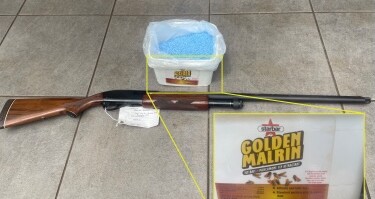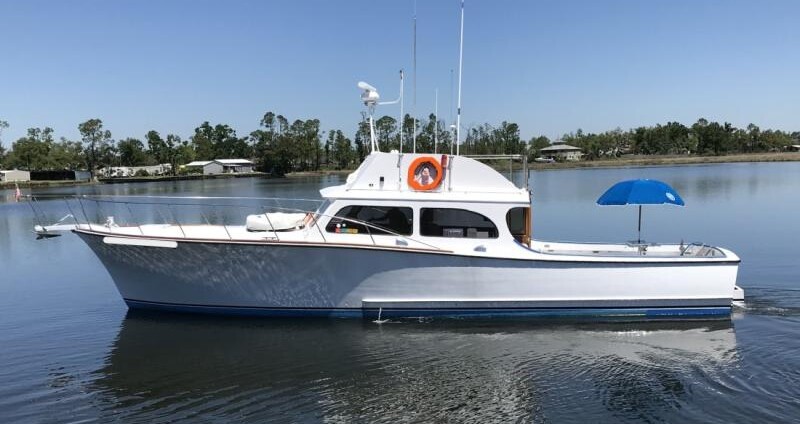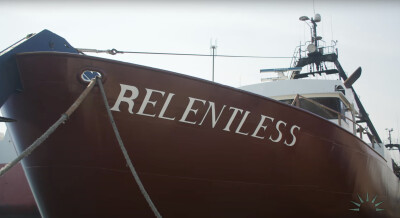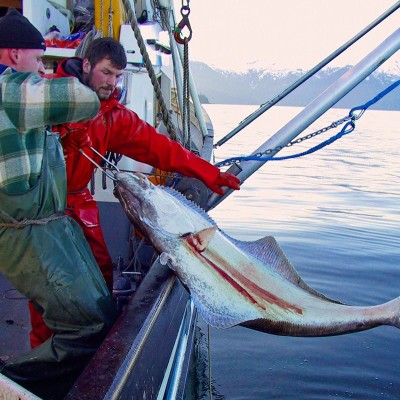A Panama City, Fla., fishing captain was sentenced to a month in jail and a $51,000 fine for violating the federal Marine Mammal Protection Act, by poisoning dolphins with pesticide and killing some with a shotgun, according to the NOAA Fisheries Office of Law Enforcement.
Zachary Brandon Barfield was sentence to 30 days incarceration and one year of supervised release, plus a $51,000 fine on May 21 by Federal Magistrate Judge Michael J. Frank of the Northern District of Florida, Panama City Division, according to a statement released by NOAA OLE.
Barfield operates New Beginning, a 52-foot Guthrie-built fishing and charter vessel homeported at Panama City, according to his company website. NOAA officials say the agency’s investigation goes back to 2023 when a NOAA Fisheries special agent received a tip that a fisherman was killing bottlenose dolphins.
“This led to a 2-year investigation in coordination with the Florida Fish and Wildlife Conservation Commission, and ultimately a criminal prosecution by the Department of Justice,” according to the agency statement.
NOAA investigators seized evidence for prosecution, including a shotgun and one container of methomyl, “a restricted-use pesticide that has no residential use and is highly toxic,” according to the agency.
Barfield repeatedly shot dolphins and fed them poison-wrapped baitfish from his fishing vessel and an additional charter vessel in 2022 and 2023, during both commercial and charter fishing trips, according to the Office of Law Enforcement. “Our investigation revealed that Barfield shot at least five dolphins with a 12-gauge shotgun, with one confirmed death. One of the shootings occurred on a charter vessel with multiple witnesses on board.”
The investigation found that Barfield fed an estimated 24 to 70 dolphins poison-laden baitfish on charter trips that he captained.

“Barfield stated he was ‘frustrated with dolphins ‘stealing’ his catch.’ Over the course of an estimated six to seven charter trips during the summer of 2022, Barfield deliberately used methomyl to poison dolphins,” according to the agency. “His use of the methomyl was deliberate, resulted in harmful impacts to the local population of bottlenose dolphins, and likely resulted in multiple dolphin deaths.”
NOAA officials say conflict between anglers and dolphins has been widely documented throughout the Southeast states. In cases from 2014 to 2024, there were 21 known intentional dolphin fatalities from gunshot wounds, arrows, explosives and other sharp objects. Testimony during Barfield’s court trial cited research showing that gunshot wounds to marine mammals are severely underestimated.
“There are consequences to individuals who decide to harm protected and endangered species,” said Paige Casey, acting assistant director, NOAA Fisheries Office of Law Enforcement Southeast Division. “We take these types of actions seriously and we will exhaust any and all leads related to marine mammal deaths to prosecute bad actors to the full extent of the law.”
The case was investigated jointly by NOAA Fisheries and the Florida Fish and Wildlife Conservation Commission, with assistance by prosecuting attorneys at the U.S. Department of Justice Environmental Crimes Section and U.S. Attorney’s Office for the Northern District of Florida.
“The illegal use of a pesticide is alarming and we encourage anyone who may witness harmful behavior to marine mammals, and any other actions detrimental to marine life, to contact our enforcement hotline.”
The Marine Mammal Protection Act sets heavy penalties for harassing, harming or feeding marine mammals. Violations can be prosecuted civilly or criminally by federal authories and are punishable by up to $100,000 in fines and up to 1 year in jail per violation. Strandings or injuries to marine animals can be reported to the Southeast Marine Mammal Stranding Hotline at (877) WHALE-HELP (877-942-5243).







